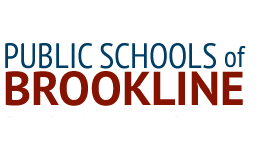Title I Services
-
The No Child Left Behind Act of 2001 (NCLB), reauthorized in 2015 as the Every Student Succeeds Act (ESSA) identifies certain federal grant programs that provide funding to school districts. The Title I grant program (Helping Disadvantaged Children Meet High Standards) has been in place in some form since 1965. The Title I grant provides funding to local school districts to assist struggling students in meeting the state’s challenging academic standards. Title I is composed of four smaller grants. In any given year, Brookline is eligible to receive funding from 1 to 3 of these sub-grants, depending upon federal census data on the town’s economically disadvantaged population.
Schools with over 35% of their students designated as economically disadvantaged can operate a school-wide program. Schools with fewer than 35% of their students designated as economically disadvantaged can offer “Targeted Assistance” programs. A Targeted Assistance school’s eligibility may change from year to year, depending upon the number of students whose families are identified as economically disadvantaged. One measure used in Brookline to determine this is the number of students receiving free and/or reduced lunch at a school. Each year, information is gathered from every school in Brookline, yielding a system average number of students whose families are considered economically disadvantaged. Schools with a number of students from economically disadvantaged families that is higher than the system average are considered by the state as eligible for Title I funding.
For the 2019-2020 School Year, the Coolidge Corner School, Lawrence, Pierce and Lincoln will receive funding as Targeted Assistance schools.
-
Frequently Asked Questions (FAQ)
What does Title I provide?
Title I funds a number of activities, depending on the amount of yearly funding. These activities include:
- Supplementary Literacy instruction for struggling students in Grades K-6 during the school year. Services are provided to supplement rather than supplant, or replace, classroom instruction. Literacy Specialists work with classroom teachers to reinforce the classroom curriculum, and the skills and strategies necessary for continued development in literacy.
- Inclusion Specialist support. These are educators who are highly skilled in practices to create an effective inclusive classroom. They have skills and experiences working in a collegial manner with other adults. Inclusion specialists work with the teachers to build their capacity to meet the needs of struggling students, including students with learning disabilities and ELL students, in the general education classroom.
- Professional development for teachers in Title I schools to increase their ability to work with all students.
- Activities that help parents support their child’s academic growth.
- Summer Supplementary Academic Support Programs and Extended Time Learning Support
Who provides the supplemental instructional services?
In all Brookline schools, highly qualified literacy specialists provide supplemental instruction to improve student learning. Schools receiving Title I funds have a larger team of literacy specialists than other schools. All literacy specialists reinforce classroom concepts and provide support in specific components of reading to advance student learning. Literacy specialists collaborate with classroom teachers and other specialists to ensure consistency in instruction.
Is there a difference in services between schools that receive Title I funds and those that do not?
The services provided to struggling students by literacy specialists are the same in all Brookline schools. However, Title I eligibility indicates a larger number of students needing academic support. Title I funding is used to provide additional staffing at these schools, beyond the regular distribution of specialists funded by the local district.
Are there additional requirements for schools receiving Title I funds?
- Schools receiving Title I funds must notify parents, and are encouraged to provide resources to help parents become involved in their child’s learning.
- There are specific reporting requirements for teachers in the fall and the spring regarding student eligibility and student progress.
Can private schools participate in Title I programs?
Private schools that educate Brookline resident students are eligible to participate in Title I programs. A school’s allocation is determined by the number of Brookline resident students attending the school who are in Grades K-6, are economically disadvantaged, and who would attend a Brookline Title I Targeted Assistance school (verified by their address). Private schools must consult with the public school to determine services, and must follow testing, evaluation, service delivery and reporting requirements for each student that is comparable to the public school.
- Supplementary Literacy instruction for struggling students in Grades K-6 during the school year. Services are provided to supplement rather than supplant, or replace, classroom instruction. Literacy Specialists work with classroom teachers to reinforce the classroom curriculum, and the skills and strategies necessary for continued development in literacy.
Contact Us
-
Joelle Pedersen, Ph.D.
Interim Senior Director of Teaching and Learning
(617) 730-2354
joelle_pedersen@psbma.orgJoanna Lieberman
Coordinator for PreK-8 English Language Arts
(617) 264-6416
joanna_lieberman@psbma.org


